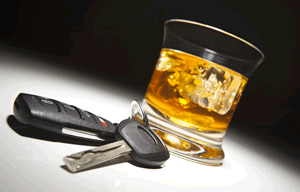North Carolina DUI Penalties
North Carolina DUI laws and penalties
Each State within the United States has been given the authority to write their own laws on Driving Under the Influence, or better known as DUI. Within this article we will explore the different laws within the State of North Carolina, and their penalties. It is important to note that North Carolina considers the terminology of DWI, or Driving While Intoxicated, to be equal to the term DUI. North Carolina also has what is known as a seven year "Lookback Period". This means that any previously aquired DUI/DWI charges you have within the past seven years becomes relevant to the sentencing process you now are facing with your current DUI/DWI charge. This is also known as a "washout" period.
What constitutes a high BAC for a DUI/DWI in North Carolina?
- Under 21: Zero tolerance
- 21 or Older: .08%
- Commercial: .04%
There is never an acceptable time to drink and drive as your vision, reasoning, along with your mental capacity to make important decisions and judgments is severely hindered and is not capable of bouncing back to what you are able to perform without alcohol in your system. Each person is different and their tolerance level for alcohol is severely unpredictabel, making it impossible to say how many drinks are "normal" or not. This is what requires law enforcement to perform chemical tests on suspecting DUI/DWI offenders. If you are pulled over and requested to take a chemical test, North Carolina has an implied consent law. This means that if you refuse to submit to a chemical test, you will be subject to a fine and automatic license suspension. For refusal to take a chemical test, the penalties are as follows:
- First Offense: 1 year license suspension
- Second Offense: No statutory provision
- Third Offense: No statutory provision
What are the penalties within the North Carolina DUI/DWI laws?
There are many penalties within the North Carolina DUI/DWI laws and we will explore them in this section. Should you be pulled over and found guilty of Driving Under the Influence, or Driving While Intoxicated, within the boarders of the State of North Carolina, the following are the penalties you will be facing (with respect to the fact that due to severiety and nature of specific cases, the penalties may be increased substantially should the circumstances demand it):
Penalty of Jail
- First Offense: 24 hours (for level 5 offender) (however, if 3 aggravated factors are present -Level 1A-minimum 12 months)
- Second Offense: 4 days (if 3 aggravated factors are present -Level 1A- minimum 12 months)
- Third Offense: 14 - 30 days (up to 2 years) (if 3 aggravated factors are present -Level 1A- minimum 12 months)
Penalties and Fines
- First Offense: $200 (for level 5 offender)
- Second Offense: Ranges depending on level
- Third Offense: Ranges depending on level
Penalty of License Suspension
- First Offense: 60 days to 1 year
- Second Offense: 1 to 4 years (if previous DWI was within 3 years)
- Third Offense: 1 year to permanent (if last previous was within 5 years)
Penalty of Ignition Interlock Device (IID)
- First Offense: None required
- Second Offense: Required
- Third Offense: If license restored, required for 7 years
Conclusion
It is important to note that laws change, as well as their interpretation and application of them. Due to the fact that there are multiple jurisdictions in a State and each may choose to enforce the laws in different ways, it is important to prepare for the unexpected. For this reason it would be in your best interest to retain the services of an experienced and professional lawyer who is well versed in North Carolina DUI/DWI laws, as well as being capable of giving you the direction you need for your specific case, along with being fully current on all laws pertaining to DUI.
Related Pages
Article of the Day
Pennsylvania Car Accident Statute of Limitations
This article will explain details on the car accident statute of limitations for the state of Pennsylvania.Category: Injury Law


